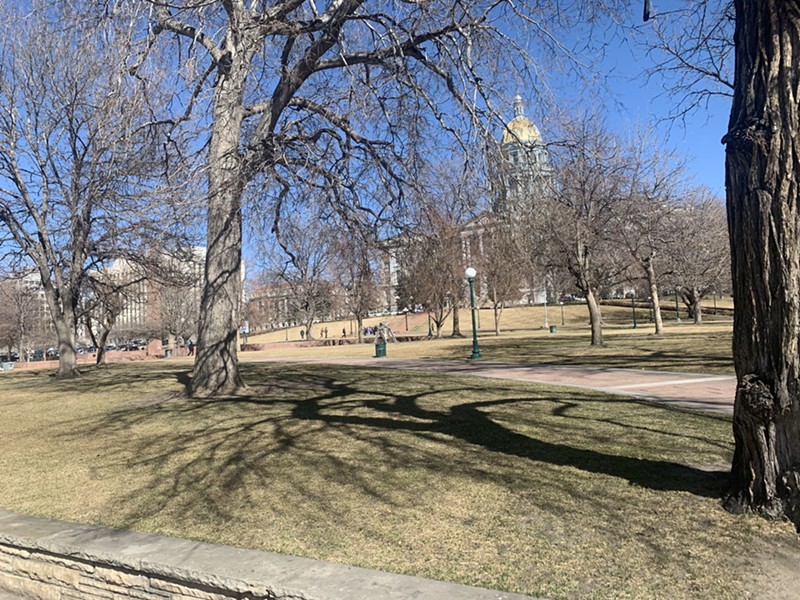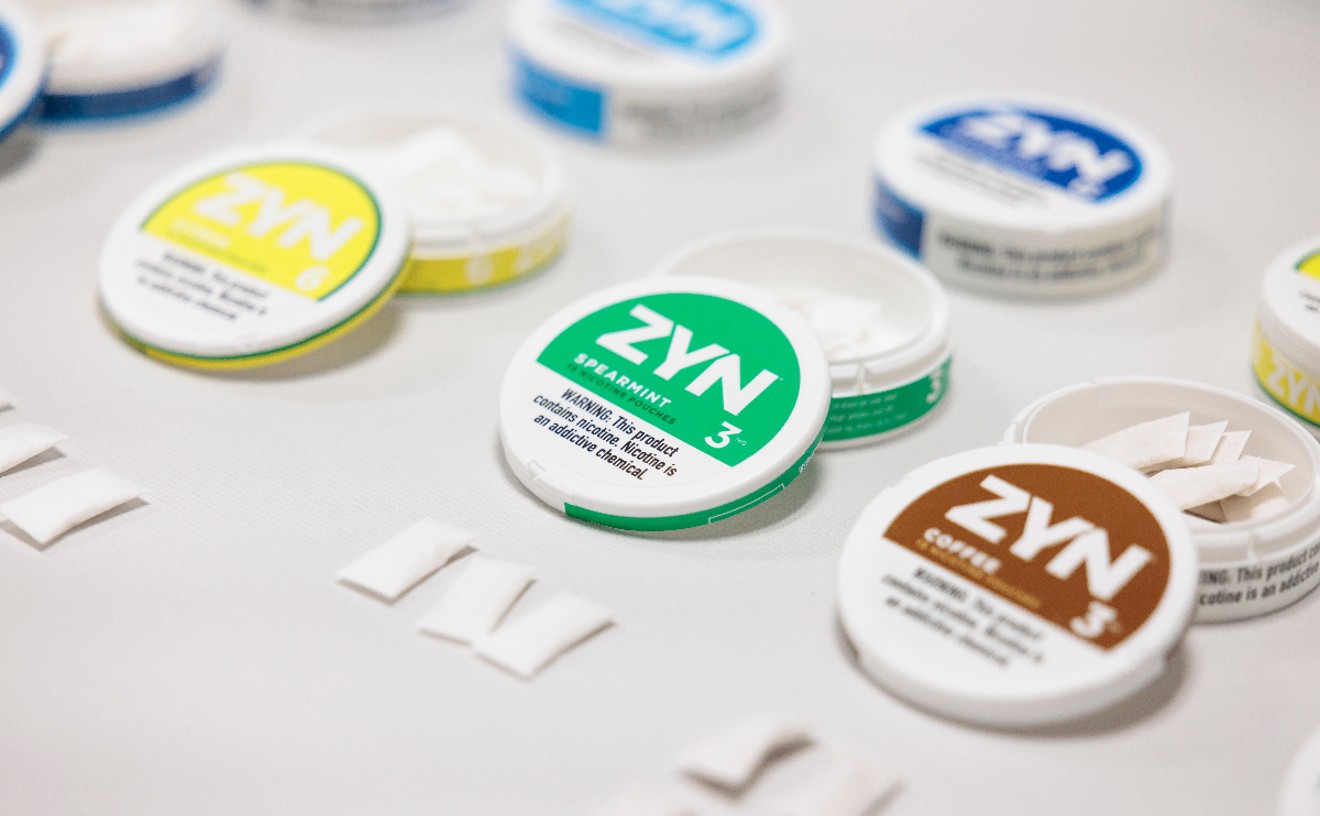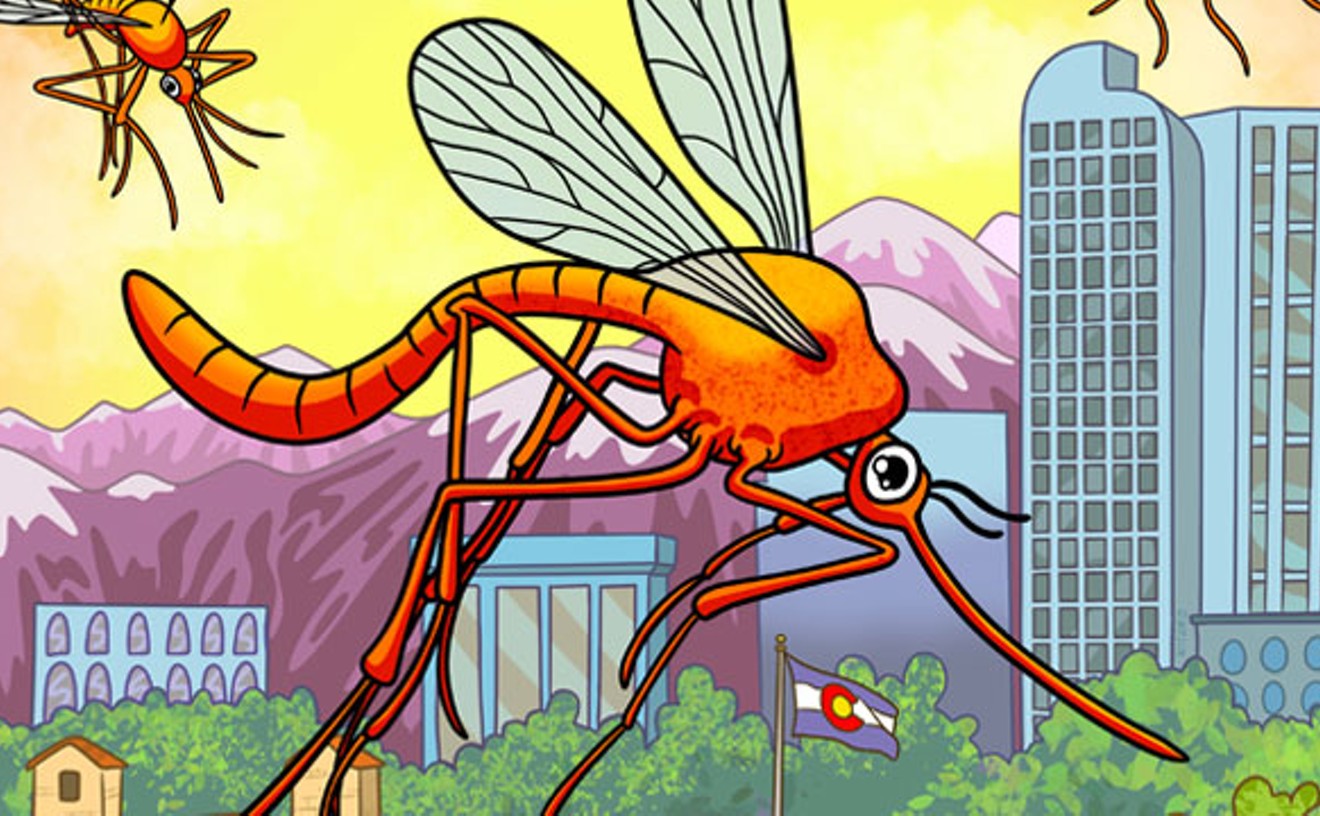Around 1 p.m. on March 5, tourists, downtown workers on a lunch break and others just enjoying the sunshine were strolling through a wide-open Lincoln Park, down the hill and across Lincoln Street from the State Capitol.
Although this used to be a familiar scene, these were some of the first people to set foot in Lincoln Park since it was closed on January 15 as a public health hazard because of a rat infestation.
The rat infestation was connected to a homeless encampment of about 35 tents that had sprung up on the outskirts of the park, according to Denver health officials.
"There’s discarded food all over this park and along the perimeters. Food waste attracts rodents and bugs. That is probably what is causing the rodent infestation in this park. So in order to get a handle on what is going on, we need to move everyone and everything out of the park so we can take a look at the grounds and come up with a plan to restore it," Ann Cecchine-Williams, deputy executive director of the Denver Department of Public Health and Environment, had said on January 15 while city officials were clearing the park.
After being cordoned off for seven weeks, the park was reopened after a deep cleaning; because it's technically a state park, Colorado officials had contracted with outside providers to clean the site after Denver closed it because of health concerns.
The rats were cleared out, the walks pressure-washed and two almost-dead trees cut down.
"They posed a safety hazard. The rats burrowed into the roots around the base of the tree into and under the root system. And from there they burrowed into the tree underground," explains Doug Platt, a spokesperson for the Colorado Department of Personnel and Administration.
State workers and contractors also had to dig out trash that had become lodged underneath snow and fallen leaves.
When the original encampment was dispersed on January 15, many of the people who had set up tents there simply moved a few blocks south. One person, who identified himself as Possum, set up camp right by the then-Westword office at Tenth Avenue and Broadway.
"Everybody thinks we're dirty rat people. That's fucked up," Possum told us at the time, clarifying that possums are not rodents, but marsupials.
Although Possum was not at Lincoln Park on March 5, we chatted with one woman who was walking around, saying "Kitty, kitty, kitty," while she fed peanuts to squirrels.
While feeding peanuts to squirrels isn't off limits, state and city officials are being more proactive in letting people know what they can and can't do in the park.
At each corner of the park, there are signs proclaiming that the park is closed from 11 p.m. to 5 a.m., and that no overnight camping is allowed.
Prior to the closure of Lincoln Park, both the Denver Police Department and the Colorado State Patrol had responded to calls regarding curfew violations in the park. Going forward, the DPD will be enforcing these rules, even though Lincoln Park is state property.
The protocol for exactly which entity should have been responding to each call "was less than crystal clear," Platt notes. "One of the things that came out of this cooperative effort was really clarifying authorities."
Homeless individuals had constructed the encampment in the weeks following the December 2019 court ruling that Denver's urban camping ban is unconstitutional. The Denver City Attorney's Office is appealing that ruling; in the meantime, the DPD is still enforcing the ordinance.
No matter what the court decides, Denver City Councilwoman Candi CdeBaca is pushing for council to overturn the camping ban. She'll need eight other "yes" votes to override an inevitable veto from Mayor Michael Hancock.
But aside from the camping ban, the City of Denver has other ordinances and regulations it can use to disperse encampments, including the one it used on January 15, when it intervened in what health officials considered a situation hazardous to public health and safety.
[
{
"name": "Air - MediumRectangle - Inline Content - Mobile Display Size",
"component": "12017618",
"insertPoint": "2",
"requiredCountToDisplay": "2",
"watchElement": ".fdn-content-body",
"astAdList": [
{
"adType": "rectangle",
"displayTargets": "mobile"
}
]
},{
"name": "Editor Picks",
"component": "17242653",
"insertPoint": "4",
"requiredCountToDisplay": "1",
"watchElement": ".fdn-content-body",
"astAdList": [
{
"adType": "rectangle",
"displayTargets": "desktop|tablet"
},{
"adType": "rectangle",
"displayTargets": "desktop|tablet|mobile"
}
]
},{
"name": "Inline Links",
"component": "18838239",
"insertPoint": "8th",
"startingPoint": 8,
"requiredCountToDisplay": "7",
"maxInsertions": 25
},{
"name": "Air - MediumRectangle - Combo - Inline Content",
"component": "17261320",
"insertPoint": "8th",
"startingPoint": 8,
"requiredCountToDisplay": "7",
"maxInsertions": 25,
"watchElement": ".fdn-content-body",
"astAdList": [
{
"adType": "rectangle",
"displayTargets": "desktop|tablet"
},{
"adType": "rectangle",
"displayTargets": "desktop|tablet|mobile"
}
]
},{
"name": "Inline Links",
"component": "18838239",
"insertPoint": "8th",
"startingPoint": 12,
"requiredCountToDisplay": "11",
"maxInsertions": 25
},{
"name": "Air - Leaderboard Tower - Combo - Inline Content",
"component": "17261321",
"insertPoint": "8th",
"startingPoint": 12,
"requiredCountToDisplay": "11",
"maxInsertions": 25,
"watchElement": ".fdn-content-body",
"astAdList": [
{
"adType": "leaderboardInlineContent",
"displayTargets": "desktop|tablet"
},{
"adType": "tower",
"displayTargets": "mobile"
}
]
}
]













